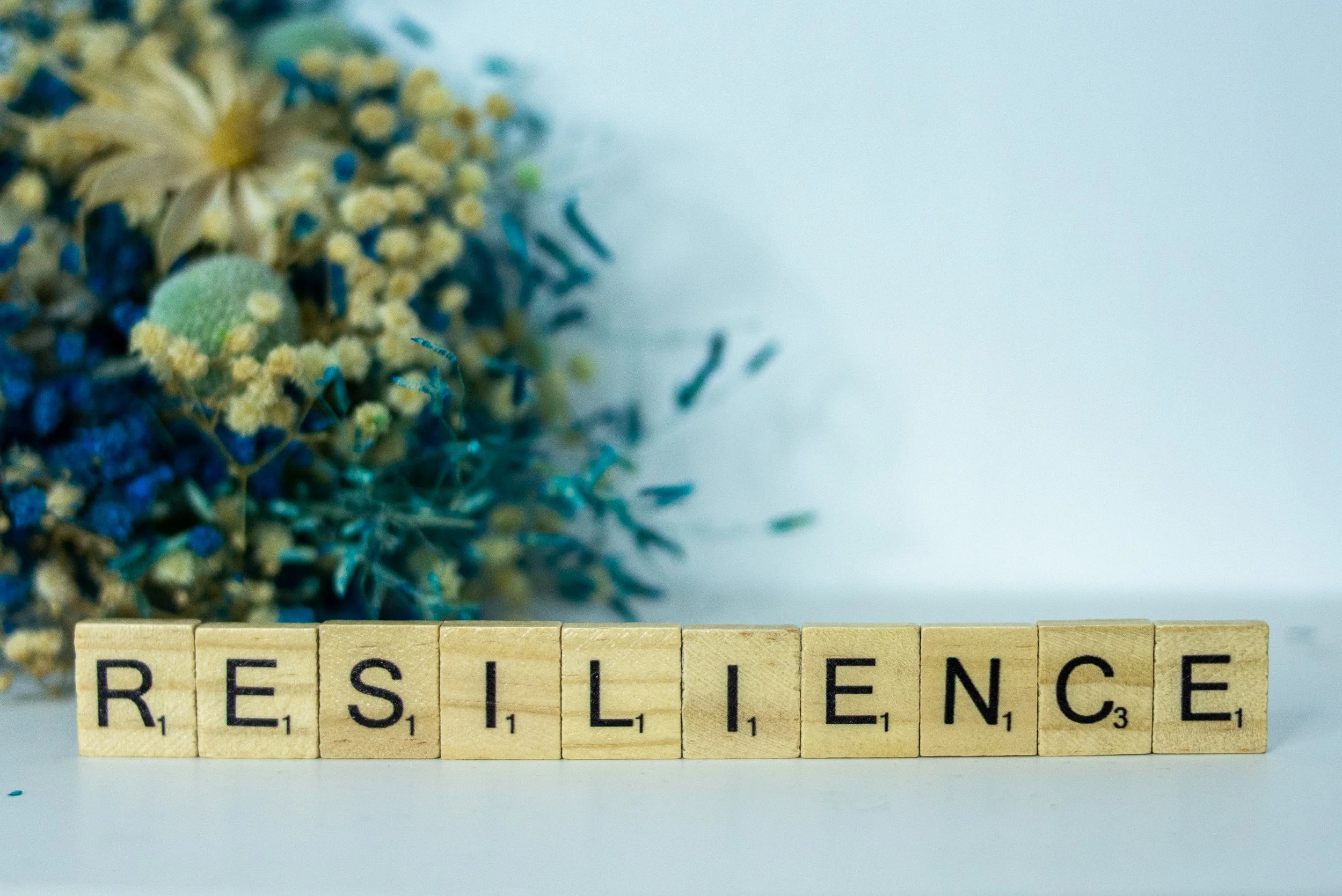The "Ordinary Magic" of Teacher Resilience: How to Thrive, Not Just Survive
The "Ordinary Magic" of Teacher Resilience
Teaching is a deeply rewarding profession, but the daily pressures of the classroom can often feel like keeping your head above water. However, research suggests that resilience isn't a rare, heroic trait—it is actually a "common capacity" that every teacher can nurture over time. By shifting our focus from trying to avoid every setback to building a strong foundation of internal self-belief and external support, we can transform the way we handle the challenges of education. Discover how focusing on the "little things" and the power of professional relationships can help you move from simply surviving to truly thriving in your teaching career.
Why Our Modern Lifestyle Is affecting our Mental Fitness.
Mental fitness and physical health are two sides of the same coin. In this post, we explore the biological root causes of anxiety and exhaustion in education. Learn how brain-level inflammation, nutrient deficiencies, and "metabolic trash" contribute to the feeling of being perpetually "tired and wired"—and take the 8-question self-evaluation to see where you can start your recovery.
Small Edits, Big Impact
Forget the exhausting house-wide purge. As we soak up the NZ summer, discover why the "One-Drawer Rule" is the secret to heading into the new school year feeling lighter, calmer, and more in control, all in just 10 minutes.
Find your people.
Teaching isn’t a job we’re meant to do alone. We spend so much of our lives at school, giving, supporting, problem-solving, and holding space for others — that the relationships around us can make or break how we experience work. When teachers feel connected and supported, the job feels lighter, stress levels drop, and well-being improves. When those connections are missing, teaching can quickly become overwhelming. Finding your people — colleagues you trust, debrief with, and grow alongside — isn’t a luxury in education. It’s essential.
Learning to Be Proud of Ourselves
Over the past two years completing my Master Health Coaching Certificate with PREKURE, I learnt one of the most powerful lessons of my life: we don’t celebrate ourselves nearly enough. As educators, we pour our energy into everyone else — but rarely acknowledge our own growth, courage, and accomplishments. This blog is a reflection on learning to be proud of myself as I reached a major milestone… and an invitation for you to do the same. Let’s normalise recognising our wins, honouring our journey, and allowing ourselves to feel genuinely proud. You deserve that.
Managing Stress During the Busy End-of-Year Rush
This time of year in schools can feel overwhelming. Reports, deadlines, parent meetings and end-of-term emotions all stack up until even small things feel like too much. If your stress bucket is close to overflowing, you're not alone, and you’re not failing. In this post, I share simple, realistic strategies to protect your energy, support your well-being, and help you move through the busy season with more calm and compassion for yourself.
The Power of Stepping Outside: Why Getting Outdoors Helps Teachers Reset
When teaching feels overwhelming and your to-do list never ends, sometimes the best way to reset isn’t another coffee; it’s stepping outside. Time in nature helps teachers lower stress, regain focus, and restore the energy needed to show up fully for students. In this post, we explore how even a few minutes outdoors can make a difference, along with five simple ways to weave nature into your week and boost your wellbeing.
Why Teachers Should Consider Going Low Carb for Better Energy and Health
Teachers often find themselves exhausted by mid-afternoon, running on empty while juggling the demands of the classroom. At the recent HCANZA Health Coaching Conference, one clear theme emerged: lifestyle matters. One powerful tool for teachers is adopting a low carb, real food approach, helping to stabilise energy, improve focus, and reduce the risk of chronic disease. Small, simple swaps can make a big difference, giving teachers the steady energy they need to thrive in and out of the classroom.
Healthy Eating Made Simple for Teachers
Teaching life comes with plenty of temptations, from staffroom birthday cakes to cheese and cracker Fridays—but healthy eating doesn’t have to mean restriction or guilt. Discover the simple 3-meal approach: 18 nourishing meals each week plus 3 flexible ones for treats you love. Backed by science-based lifestyle strategies, this balanced approach helps teachers fuel their energy, enjoy celebrations, and create sustainable habits that last.
Empowering Teachers Through Behaviour Change
In the fast-paced world of teaching, it’s easy to lose sight of your own needs while supporting everyone else. Burnout isn’t just about feeling tired—it’s the gradual erosion of joy, energy, and purpose. By recognising the early signs and making small, intentional changes, educators can protect their well-being and rediscover the fulfillment that brought them to the classroom in the first place.
Make “Failure” Your Greatest Teaching Tool
What if your biggest teaching challenges were actually your greatest growth opportunities? Learn how to reframe failure as feedback, embrace consistency, and model a resilient mindset that empowers both you and your students.
Finding Balance as a Teacher: A Guide to Thriving, Not Just Surviving.
Finding balance as a teacher isn’t about doing more; it’s about doing what matters, with intention. In this post, we explore simple, realistic strategies to help teachers set boundaries, prioritise their well-being, and create a more sustainable rhythm between work and life. Because thriving in the classroom starts with taking care of the person standing at the front of it.
Why It’s the Small Wins That Matter.
Ever beat yourself up for skipping a workout or hitting snooze? As teachers, we often focus on what we didn’t do, but real progress lies in what we did.
Got out of bed on a cold morning? Brought a nourishing lunch? Drank one less coffee?
These small wins matter.
Research shows they boost motivation, resilience, and well-being.
So today, flip the script:
What did you do well? Where did you persist?
Because showing up, even imperfectly, is still showing up. And that counts.
The Best Things in Life Are Free, And They Might Just Save Your Health!
We often search high and low for ways to improve our health and reduce stress — but the most powerful remedies are already around us, and they’re free. For teachers navigating burnout and constant demands, it’s the simple things like sunlight, movement, nature, and connection that can offer the greatest healing. In this blog, discover how these overlooked habits can support your well-being, prevent chronic disease, and help you thrive in and out of the classroom.
Teaching with a Tired Brain? Here’s How to Rewire for Resilience and Clarity
In the busy, high-pressure world of teaching, it’s easy to overlook our own mental and emotional well-being. But small, daily choices, from what we eat to how we think, can have a big impact on our brain health. As a teacher and health coach, I’ve been exploring simple, science-backed ways to protect and nurture our brains so we can show up with more clarity, calm, and energy. Here's what every educator should know.
The Future of Medicine: What Every Educator Needs to Know
The future of medicine isn’t in more pills, it’s in prevention, lifestyle, and empowering everyday people to take control of their health. As educators, we’re in a powerful position to lead that change, not just for ourselves, but for our students too. After attending a seminar with Professor Grant Schofield, Dr. James Muecke, and Louise Schofield, I walked away feeling inspired to rethink how we care for our minds and bodies in the classroom and beyond. This post shares practical, evidence-based takeaways every teacher should know.
Resilience for Teachers: How to Bounce Forward, Not Back
Teaching is rewarding, but let’s be real, it can also be exhausting. Resilience isn’t about pushing through burnout or pretending everything’s fine. It’s about learning to pause, reset, and bounce forward with purpose. In this post, I share what resilience really means for educators today, what undermines it, and how simple, practical habits can help you protect your energy, set boundaries, and thrive in (and out of) the classroom.
Understanding Stress and Anxiety: A Real Talk for Kiwi Teachers
Kia ora, awesome educators!
Let’s take a moment to talk about stress and anxiety—those unwelcome guests that show up when your to-do list is longer than the lunch queue and the coffee machine is broken again. Whether it’s managing a tricky student, prepping for reports, or juggling school and home life, stress is real. Today, let’s look at how to recognise it, understand it, and most importantly—manage it.


















